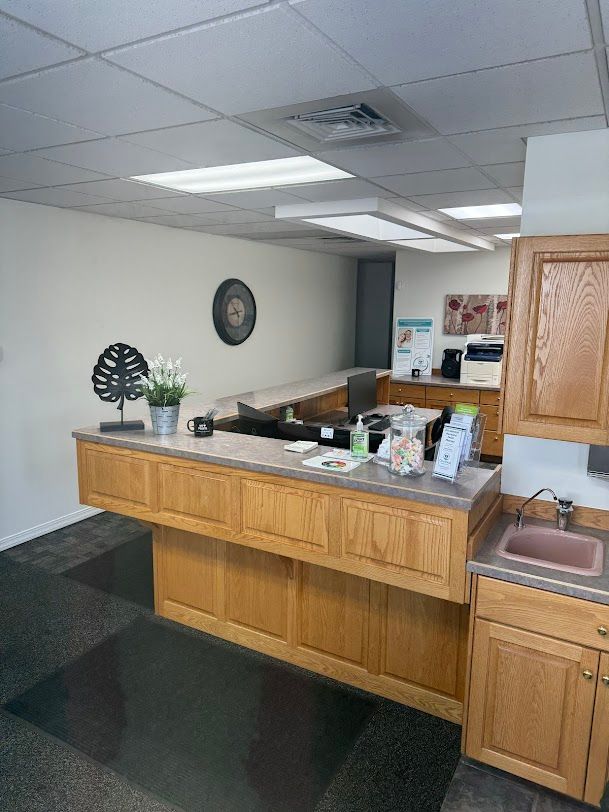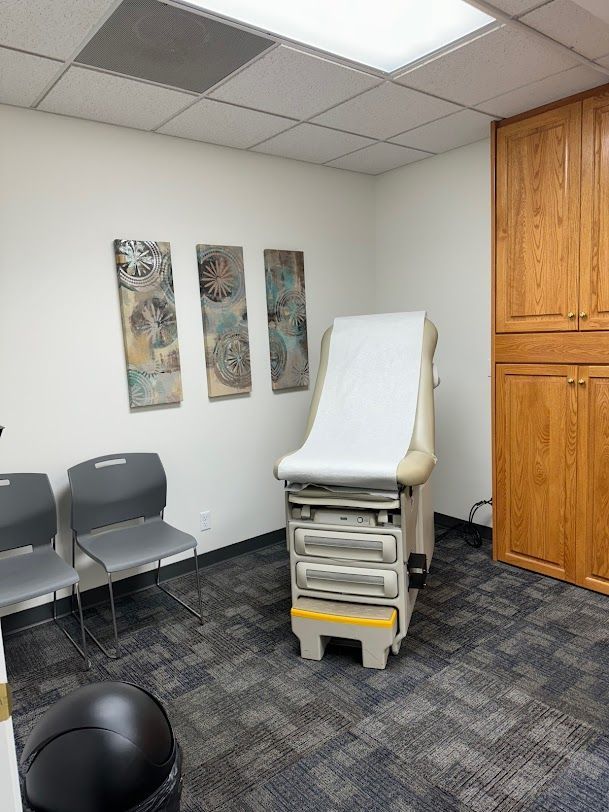Semaglutide + B12 Compounded Injections
Non Salt Form
Medications like semaglutide belong to a family of drugs called GLP-1 receptor agonists. These medications work by slowing down digestion (delaying gastric emptying).
When the stomach takes more time to digest food, this sends powerful signals to your brain that you're full (even when you are eating less than normal).
People taking semaglutide lose weight because they eat less, and feel fuller after small meals.
Medications like semaglutide belong to a family of drugs called GLP-1 receptor agonists. These medications work by slowing down digestion (delaying gastric emptying).
When the stomach takes more time to digest food, this sends powerful signals to your brain that you're full (even when you are eating less than normal).
People taking semaglutide lose weight because they eat less, and feel fuller after small meals.
Frequently Asked Questions
-
How does semaglutide contribute to weight loss?
Semaglutide is a (GLP-1) receptor agonist. It works by regulating insulin and glucagon, leading to reduced appetite, delayed gastric emptying, and improved glucose control, all contributing to weight loss.
-
How much weight will I lose?
Your weight loss depends on many biologic factors including the duration and dosages that you receive. While individual results may vary, customers may potentially achieve weight loss targets of up to 30 pounds in the first three months of treatment, and possibly 50 pounds after 6 months.
-
How should this medicine be used?
Semaglutide comes in the form of a sterile liquid solution that is administered via subcutaneous injection once a week. It starts with a titrate to reduce side effects.
-
What is the recommended dosage of semaglutide for weight loss?
Dosages of semaglutide for weight loss vary and are determined based on individual factors. Healthcare providers will prescribe an appropriate dosage, often titrated up gradually to achieve optimal results while minimizing potential side effects.
-
How much will this cost me?
- Starting Dose starts at $300 per month
- Highest Dose at 2.5 MG is $300 per month
-
Who Shouldn't use semaglutide?
Given the theoretical risk, semaglutide should be avoided in those with a personal or family history of medullary thyroid carcinoma.
Warning
Please contact your doctor ASAP and seek in-person care immediately if a side effect becomes problematic or you experience:
- Severe nausea and/or vomiting resulting in dehydration- it is important to stay well hydrated and drink plenty of fluids while on this medication.
- Kidney problems/kidney failure - vomiting, nausea, and diarrhea can cause dehydration and kidney issues and make kidney problems worse in individuals who have pre-existing kidney conditions; may sometimes lead to the need for hemodialysis.
- Thyroid C-Cell Tumor: Trouble swallowing, hoarseness, a lump or swelling in your neck, or shortness of breath (see black box warning below)
- Pancreatitis: Severe pain in your abdomen or back that will not go away
- Acute gallbladder disease - Pain in the middle or right upper stomach, fever, white parts of your eyes turn yellow or skin turns yellow, nausea/vomiting. If gallstones or inflammation of the gallbladder is suspected further studies are needed.
- Diabetic retinopathy problems: Changes in vision in those with type II diabetes, particularly vision problems may worsen in those with a history of diabetic retinopathy.
- Hepatitis/Elevated liver enzymes/Jaundice
- Severe gastrointestinal disease - may cause gastrointestinal disease; do not use if you have a history of severe gastrointestinal disease.
- Signs of low blood sugar (for example, dizziness, weakness, shakiness, jitteriness, headache, anxiety/mood changes, rapid heartbeat, confusion, slurred speech, sweating, or lightheadedness). While this is rare with GLP-1s, if it occurs, please seek in-person care immediately. If you have these symptoms, try having liquid or food containing sugar (around 15-20 grams) -drinking juice, having regular soda, or eating some hard candies right away, as this will help raise your blood sugar quickly. If taken with insulin or an insulin secretagogue (ie sulfonylurea) it is best to talk to your healthcare provider about possibly lowering the dose of these medications to lower the risk of hypoglycemia.
- Increasing heart rate
- Worsening depression, behavior changes, or suicidality
- Never share the semaglutide with other people
Disclaimer
*The content on this website is for informational purposes only. The purpose of this website is to serve as a source of information when evaluating different treatment options. It is not intended to substitute for a qualified medical consultation with your healthcare provider. Never avoid speaking to your physician or disregard his advice because of something you’ve read on this website. **Results are not typical; actual results may vary. Always seek the advice of your qualified healthcare provider before making any changes to your healthcare regime. NOTICE: The information contained on this page is general information and is not intended to take the place of your personal physician’s advice, or to diagnose, treat, cure, or prevent any disease. The notes contained herein are not a substitute for medical advice or treatment for specific medical conditions and should not be used as such. Only a qualified physician can determine if you qualify for and should undertake treatment.
All Rights Reserved | One Peak Medical Care







